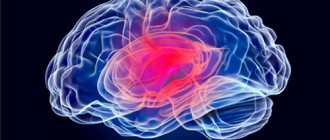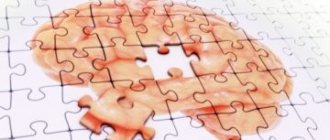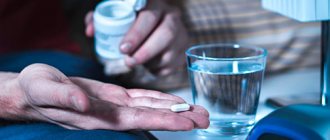There are diseases that appeared and were discovered relatively recently. Many people consider depression to be a modern disease, but the symptoms of depression were described in ancient times, and the ancient Greek healer Hippocrates called this condition “melancholy,” offering certain treatments to get rid of it. Depression is characterized by decreased mood, pessimism, motor and intellectual retardation. With depression, interest in life and normal life processes decreases. Depressive conditions can vary in form and complexity.
Severe depression causes
Severe depression usually occurs for two reasons: psychological and physiological.
For psychological reasons, depression can develop as a result of stress or any traumatic situation. This could be the death of a loved one or relative, physical or moral violence, a terrible disaster in which a person became a participant, and many others. Usually, after two months, the depressive state can go away, but without proper help it drags on and severe depression can develop.
A number of seemingly insignificant unpleasant life situations present in a person’s life for quite a long time can become a source of constant stress. Lack of material resources; work that doesn't bring you joy; forced living with unpleasant people; deterioration in the quality of life due to any chronic disease - all this can be attributed to a constant stressful situation.
Severe depression can develop due to frustration - a condition in which a person constantly feels that his desires are impossible to fulfill.
An existential crisis can simultaneously act as both a cause and a manifestation of depression. It is expressed in the loss of life goals, a feeling of the meaninglessness of existence, and an imbalance of harmony.
The physiological causes of depression have completely different roots. Alcohol and drug use, menopause, cerebrovascular accidents, severe fatigue, chronic diseases, lack of proper nutrition - this is just a small list of physiological disorders that can lead to severe depression. An important fact is that depression rarely develops for any one reason; often several factors lead to it. And successful treatment is only possible if all the causes of this mental disorder are taken into account.
Types of depression
Once you see a doctor, you can count on a correct diagnosis and quick treatment results if the specialist can objectively determine the form of the disease. Timely recognition and application of proven treatment methods guarantee a quick exit from an anxious state.
- Neurotic depression is a patient’s condition when he reacts painfully to various problems and becomes withdrawn and depressed for any reason. With neurotic depression, patients have difficulty getting out of a traumatic situation.
- Situational or reactive depression differs from neurotic depression in that the patient responds more quickly to treatment. A correct diagnosis and strict adherence to the specialist’s recommendations make it possible to quickly cope with the disease.
- With endogenous depression, not only personal qualities and people’s reactions to changing situations are involved in the process of formation of the disease state, but also metabolism, genetic characteristics, and heredity. The disease sometimes manifests itself without any reason or pressure from external factors. In this case, the trigger can be not only stress, but also a common cold or a banal change in the weather. Women during menopause should pay special attention to sudden mood changes. Endogenous depression manifests itself most clearly in the morning, and neurotic depression in the evening.
- Bipolar depression has its own dangers. A severe form of the disease leads to a painful, manic, elevated state, when inexplicable joy makes one perform wonderful deeds. Often such an unreasonable rise in mood sharply turns into a feeling of melancholy.
- Unipolar types of depression are not accompanied by sudden mood swings. In this case, joylessness and depression constantly weigh on the patient’s shoulders.
Severe depression symptoms
The fact that a person is severely depressed is determined by the following symptoms: depressed mood, decreased performance and activity, constant feeling of fatigue, inability to concentrate on anything, constant self-flagellation and guilt, low self-esteem, thoughts of suicide, a gloomy and hopeless look for your future, insomnia or, conversely, severe drowsiness, loss of appetite.
The clinical picture of severe depression is as follows: a person experiences a persistent feeling of melancholy every day; his mood is depressive; signs of psychomotor retardation are observed; he cannot concentrate his attention on anything; sexual desire decreases; in the morning the patient feels tired and exhausted due to the fact that he cannot sleep normally at night. Manifestations of severe depression also include a feeling of suffocation and discomfort in the chest, complete apathy, pessimistic views of one’s future (a person always expects an accident to happen), lack of will, inability to make any decisions, constant drowsiness and a feeling of laziness.
Our doctors
Lastovkina Valeria Valerievna
Psychiatrist
3 years experience
Make an appointment
Seyku Yuri Viktorovich
Doctor - psychiatrist, candidate of medical sciences, doctor of the highest category
Experience 46 years
Make an appointment
Bogdanova Natalia Ivanovna
Psychiatrist, psychotherapist
19 years of experience
Make an appointment
Severe depression signs
If a person does not have the strength and desire to do anything, if he cannot force himself to do anything, and at the same time is constantly in a bad, depressed mood, then this indicates signs of a depressive state. Manifestations of depression also include constant laziness, which disguises apathy. The fact is that during severe depression, a person’s brain begins to work differently - its biochemical processes change, which leads to laziness. There are three main brain transmitters that are responsible for a person’s mood, energy and performance - dopamine, norepinephrine and serotonin. And when their work is disrupted, complete apathy sets in and there is a lack of energy to engage in any activity. In such cases, it is necessary to start treatment with special drugs on time, otherwise the person simply will not want to get out of bed in the morning and will completely lose interest in life. The consequences of severe depression can be very serious and negative for the patient - a constant feeling of fear and anxiety develops, eventually acquiring manic forms.
The course of severe depression in pregnant women deserves special attention. Since it often causes miscarriage. Therefore, at the slightest sign of depression, a woman needs to seek help from a specialist.
Main causes of depression
One of the common mental disorders in a person is called depression. The very first signs of this condition are manifested by depressed mood, inhibition of thought processes and motor activity. Against the background of decreased mood, there is a change from positive emotions to a negative attitude and pessimism.
If we talk about gender predisposition, then women are more prone to depression, since they take everything closer to their hearts. Although in recent years there has been a tendency to increase the incidence of depression in men. Every year, 150 million people are issued sick leave with this diagnosis. According to forecasts of the World Health Organization, this psychological disease will take one of the leading places, ahead of today's leaders (diseases of the cardiovascular system and infectious diseases).
If depression occurs as a result of severe stress, it is called psychogenic. Psychogenic depression is also observed in patients who have experienced a heart attack or stroke. Patients with cancer are no less susceptible to this condition. As a rule, depression worsens the course of the underlying disease and depletes the body, leaving no strength to fight the disease. Mental disturbances are also noted during alcoholism, drug addiction , intoxication, and even during infectious diseases.
When the causes of depression remain unclear, the disease is called endogenous. It is recorded in people who suffer from manic-depressive psychosis or schizophrenia.
Severe depression and suicide
Severe depression is dangerous because the patient completely loses the instinct of self-preservation. A persistent feeling of melancholy, as well as constant pain tormenting his soul, makes him think about suicide. An overwhelming feeling of guilt, a feeling that he deserves punishment, a desire to free his loved ones, often push a person to commit suicide. According to statistics, 15% of people with mental disorders of unknown etymology become victims of suicide.
At the onset of the disease, the person is so weak, exhausted by severe depression, that he is unable to take any steps to take his own life. But as soon as this condition goes away, the patient may attempt to commit suicide. He will think through the suicide plan in detail, develop it, and try to create a deceptive impression that he has gotten better, without leaving the thought of committing suicide.
The most common cases of suicide are among lonely people with a history of somatic illnesses and people with a history of suicide in their family.
What should a person do if he has all the signs of severe depression? There is only one answer to this question: seek help immediately. If depression is not treated, it will become chronic, and this is fraught with very dangerous consequences.
Depression: what to do
Pathology requires an integrated approach using medications, physiotherapy and a variety of psychotherapy techniques.
Drug treatment for depression
The basis of therapy is antidepressants (monoamine oxidase inhibitors or selective serotonin reuptake inhibitors). When solving the problem of how to treat depression, doctors at our clinic give preference to the latest generation of drugs, which are much less likely to cause side effects and are more suitable for long-term use.
How to Treat Depression: Outpatient and Inpatient Therapy
Hospitalization is necessary for exacerbation of a depressive episode. Often in such a state, psychomotor agitation is noted: the patient literally tears out his hair, wrings his hands, screams or moans, and can injure himself. Complications in the form of delusions with ideas of self-abasement, self-accusation, one’s own death, and ruin cannot be ruled out. Doctors often encounter hypochondriacal delusions when a person is sure that he has an incurable, severe pathology.
Treatment of depression in a hospital begins with high doses of antipsychotics and antidepressants in combination with physiotherapy and exercise therapy. This treatment regimen lasts up to several weeks and allows for a visible improvement in the patient’s condition. After this, transfer to outpatient treatment is possible. Our doctor selects the optimal dose of antidepressants and drugs to eliminate concomitant somatic diseases.
Depression: how to get rid of the disease with the help of psychotherapy
Consultations with a psychologist are an integral part of the treatment of the disorder. The specialist must understand the reasons for the development of the disease, teach the patient to experience conflict and stressful situations, express his feelings, and not withdraw into himself. The duration of a course with a psychologist for depression is not limited. Usually, a doctor is visited after completing a course of treatment for depression in a hospital to prevent relapse and monitor the effectiveness of taking prescribed medications.
Is it possible to cope with the disease at home?
Experts categorically warn against independent attempts to solve the problem of how to cure depression. This is a very serious and dangerous illness, and if you do not diagnose it in time and do not seek professional help, even suicide is not ruled out. That is why self-medication is strictly contraindicated, and even more so, the use of dubious traditional medicines, drugs with unproven clinical effectiveness.










